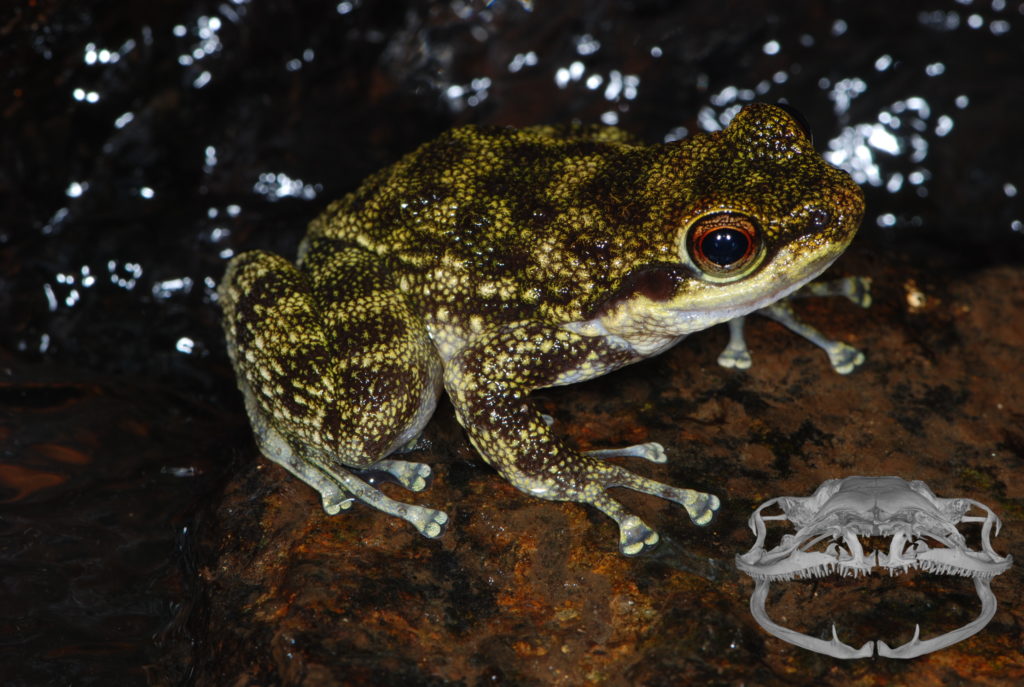Biological classification arranges taxa according to their degree of relationship; several species may be grouped in a genus, several genera may be grouped in a family, etc. Higher-level systematics in amphibians is relatively stable and taxonomic novelties above the species level are rare. Discovering a new anuran family in times when more than a third of known amphibian species was already included in large-scale phylogenies is a sensational exception! Most family level descriptions go back to the 19th century and finding a new family nowadays is like hitting the jackpot for a taxonomist!
African torrent-frogs were long-time considered to represent a single genus Petropedetes, having a disjunct distribution in West, Central and East Africa. These frogs are characterized by femoral glands, a knob-like papilla on the tympanum, spikes protruding the skin in (probably fighting) males or tusk-like jaw prolongations; however, these characters are not present in all species. A study on relationships among these frogs revealed generic distinctness for the three regions and surprisingly West African torrent-frogs were even placed outside the family Petropedetidae, something really unforeseen! A follow up study published in Frontiers in Zoology investigated relationships of the new genus with all anuran families belonging to the superfamily Ranoidea (‘true frogs and relatives’) and highlighted the distinctness of West African torrent-frogs. Molecular clock techniques dated the presence of their latest common ancestor with other recent frogs back to 90Ma in the Cretaceous, back to the time of dinosaurs. Additional external morphological analyses and ct-scans supported their uniqueness and the new family Odontobatrachidae (referring to the Greek words for teeth and frog) has been erected.
While several other vertebrate genera are endemic to West Africa, Odontobatrachidae represent the only endemic vertebrate family in this region! Actually, West Africa is regarded well studied in respect of its amphibian fauna; however, many new species still await description; including several hitherto overseen cryptic taxa in Odontobatrachus natator. This extraordinary finding points to our knowledge gaps even in supposedly well studies areas. Torrent-frogs inhabit the splash water zone along waterfalls and cascades in forest remains and results of this study point to the uniqueness of the West African biodiversity hotspot and its necessity for protection, as habitat destruction might lead to an irreplaceable loss of evolutionary potential in a unique vertebrate lineage.
The study has been carried out by scientists of the Museum of Natural History Berlin in collaboration with the Natural History Museum of Geneva and the University of Basel.
Are you the author of this article? We had a site crash back in 2016 and lost some author attributions. We promise this is not a snub! Please email us and let us know that this is your post. Thanks and apologies!


